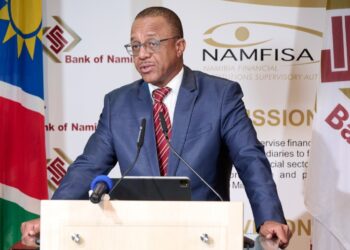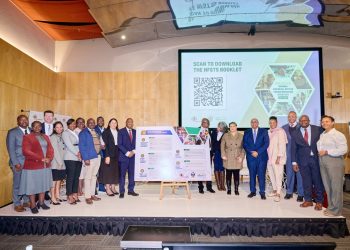
We often hear the term “you can love where you live, but you don’t have to invest thereâ€. And for many years this might have felt like the reality for Namibian investors.
Opportunities were not necessarily limited, but South African and offshore markets always attracted the type of attention that local markets lacked. There were several reasons for this, largely due to the smaller population – which essentially means a smaller grouping of investors within the country. A contracted pool of investors also had a limited effect on local assets, with many looking to outside markets to access attractive opportunities and returns.
What the last few years has shown us, is that Namibia is becoming a force to be reckoned with as a country with countless investment opportunities. One of the trigger points was the evident economic battles that our southern neighbours continue to fight due to elevated levels of loadshedding and the lack of efficient infrastructure, amongst other things. Significant levels of foreign and local investors were drawn away from South Africa due to increased economic uncertainty.
Namibia’s socio-political stability has expanded the country’s progressive outlook for local and international investors. This has resulted in the growth of popularity for Namibian fixed-interest instruments as investors were attracted by a more stable economic outlook. In 2023, the acquisition of Namibian Breweries by Heineken peaked the immediate interest for Namibian equity investors, with a large influx of local investors looking to get in on the action.Â
The main driver among investors was the excitement and developments around green hydrogen and the major discoveries made in the country’s Orange Basin in 2022 that has lit up the oil and gas sector. The discoveries have since attracted a great deal of attention, not only from multinational energy corporations, but has also peaked foreign interests.
Even though it might take some time for Namibia to see and feel the actual economic effect of these discoveries (as oil exploration can be a very timely process), there is no doubt that if proven to be commercially viable the Namibian economy could be expecting a massive boost in revenue activity. The Namibian government have realised the potential that green hydrogen could also present to regional and national growth, therefore ensuring that supportive policies have been implemented to support these developments and enhance industrialisation.Â
The impact in the secondary markets have been evident, as well. There has been a rise in property demand along the Namibian coastline. The green hydrogen project within the Tsau Khaeb National Park near Luderitz, along with various other oil and gas exploration projects, have increased demand for housing. The small coastal town is now expecting a large influx of people, mostly new “employees†to accommodate the development of these projects.
The logistics and fleet management industries have also seen an increase in demand for services. The need for rental vehicles has continued to climb to keep up with the inflow of foreigners visiting our shores and needing transport. The secondary bond market has also seen an upward trend over the last few years. For a long time, local bond markets were mostly driven by larger institutional investors, but with the increase of government issuances and regulatory implementations for local investment vehicles (unit trust funds, for example) we have seen the trading on the secondary market expand and attract more investor interest.
The excitement surrounding these developments has not only made Namibia a more investment-friendly destination but has made the country stand out due to its endless potential. The country has an approximate surface area of 825,000 km2. Although geographically large, the population of around 3 million remains low and condensed. This creates substantial opportunities for infrastructure developments.
A great example of this would be the expansion of the Walvis Bay commercial port to accommodate the fishing and mining industries, as well as the continuous expansion of the petroleum and salt industries. From an economic perspective, expansion will lead to an increase in economic activity, which would continue to generate and enhance local assets.
The question? How do we ensure that we do not miss out on these investment opportunities? There are numerous ways to access the potential of the Namibian markets. For active investors, many still opt to buy directly from the Namibian Stock Exchange (NSX) or through the service of an asset manager. Active investors also have the option to buy government bonds and treasury bills at respective auctions.
For passive investors, however, the best way to ensure that they can reap the potential of Namibian assets would be by investing in collective investment schemes, or unit trusts and mutual funds. Investing by making use of unit trusts or mutual funds provides the everyday passive investor with various diversified options to best suit their investment needs.Â
For example, some funds may focus on specific asset classes (equities, bonds, property, or commodities), whereas others may focus on a more diversified approach which allocates to a variety of asset classes (such as balanced or managed funds). Investors could also be interested in constructing a model portfolio, whereby they could allocate to a range of different funds to best find the diversified portfolio that suits their need and risk appetite.
Allocating to various funds by constructing a model portfolio provides the everyday passive investor an opportunity to allocate to various asset classes without having to focus on the day-to-day market activities and movements.
Given the excitement over the next decade surrounding the Namibian economy and what these developments could prove to mean for the country, investors should have every reason to smile. Over the long-term, however, diversification remains key within your investment portfolio when building and preserving your wealth.
Therefore, it is important to consult your broker or financial adviser on the balance of your portfolio and discuss the opportunity and potential of allocating to Namibian-based assets.
*Stephen Baard is Wealth Manager at Old Mutual Wealth











